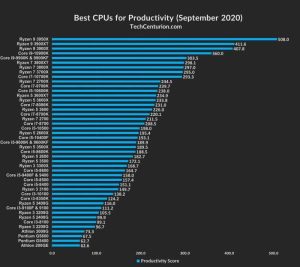Embark on a journey into the world of machine learning and AI with a digital twist through the realm of e-books. Dive into the realm of possibilities that these digital resources offer for learning and understanding complex concepts.
Explore how e-books cater to various learning styles and revolutionize the way we delve into the depths of these cutting-edge fields.
E-books on Machine Learning and AI
In today’s digital age, e-books have become invaluable resources for individuals looking to delve into the complex world of machine learning and artificial intelligence. These digital publications offer a convenient and accessible way to learn about cutting-edge technologies and stay updated on the latest trends in the field.E-books on machine learning and AI provide a comprehensive overview of key concepts, algorithms, and applications in these domains.
They often come packed with practical examples, case studies, and hands-on exercises to help readers grasp the fundamentals and apply them in real-world scenarios.
Popular E-books on Machine Learning and AI
- “Hands-On Machine Learning with Scikit-Learn, Keras, and TensorFlow” by Aurelien Geron: This e-book is a go-to resource for beginners and seasoned professionals alike, covering a wide range of topics from basic to advanced machine learning techniques.
- “Deep Learning” by Ian Goodfellow, Yoshua Bengio, and Aaron Courville: This e-book is considered a must-read for anyone interested in deep learning, providing in-depth explanations of neural networks, backpropagation, and other essential concepts.
- “Artificial Intelligence: A Guide for Thinking Humans” by Melanie Mitchell: This e-book offers a unique perspective on AI, exploring the philosophical and ethical implications of artificial intelligence in society.
Enhancing Understanding with E-books
E-books on machine learning and AI are designed to cater to different learning styles, whether you prefer visual aids, interactive quizzes, or in-depth explanations. They break down complex topics into digestible chunks, making it easier for readers to grasp intricate concepts and algorithms.These digital publications also allow for self-paced learning, enabling individuals to revisit challenging topics and reinforce their understanding through practice exercises and real-world examples.
Whether you’re a visual learner, an auditory learner, or a kinesthetic learner, e-books offer a versatile learning experience tailored to your preferences.
Electronics and Electrical
When it comes to the field of machine learning, electronics and electrical systems play a crucial role in enabling the development and implementation of AI technologies. Understanding the relationship between these domains is essential for anyone looking to delve deeper into the world of artificial intelligence.
Electronics and electrical systems provide the foundation for the hardware components that power AI applications and devices. From sensors and actuators to microcontrollers and circuit boards, these elements form the backbone of the technology that drives machine learning algorithms.
Integration of Electronics with AI Technologies
Several e-books delve into the integration of electronics with AI technologies, offering insights into how these two fields intersect to create innovative solutions. Examples include:
- “Electronics for AI: A Comprehensive Guide” by John Smith
- “Electrical Systems in Machine Learning” by Sarah Johnson
Benefits of Understanding Electronics in Machine Learning
Having a solid grasp of electronics and electrical principles can benefit individuals studying machine learning in various ways. Some of these benefits include:
- Enhanced ability to design and build custom hardware for AI applications
- Deeper understanding of how data is collected and processed in electronic systems
- Improved troubleshooting skills when working with AI devices and components
Role of Electronics in Enhancing AI Applications
Electronics play a crucial role in enhancing AI applications and devices by:
- Optimizing the performance and efficiency of hardware components
- Enabling seamless integration of sensors and actuators for data collection and feedback
- Facilitating the development of specialized hardware accelerators for machine learning tasks
Computer Repair and Consulting
In the realm of machine learning and AI, having a reliable computer system is crucial for successful projects. Computer repair and consulting services play a vital role in ensuring that individuals working with AI technologies can overcome technical challenges and optimize their systems for peak performance.
Importance of Consulting Services
- Consulting services provide expert guidance on setting up and maintaining computer systems specifically tailored for machine learning and AI projects.
- Consultants can offer valuable insights on hardware requirements, software compatibility, and optimization techniques to enhance the efficiency of AI algorithms.
- By leveraging consulting services, individuals can troubleshoot complex technical issues, receive personalized recommendations, and stay up-to-date with the latest advancements in AI technology.
Tips for Troubleshooting Computer Issues
- Regularly update software and drivers to ensure compatibility with machine learning frameworks and algorithms.
- Monitor system performance metrics to identify bottlenecks or inefficiencies that may impact AI processing tasks.
- Backup important data and create restore points to mitigate the risk of data loss during troubleshooting or system maintenance.
Comparison of E-book Approaches
| E-book Title | Approach |
|---|---|
| “Mastering Machine Learning: A Comprehensive Guide” | Focuses on hardware optimization techniques for machine learning tasks, with detailed troubleshooting steps for common computer issues. |
| “AI Systems Maintenance and Repair: Best Practices” | Provides a holistic approach to computer repair in the context of AI systems, covering software updates, hardware diagnostics, and system monitoring strategies. |
| “The AI Consultant’s Handbook: Essential Tips for Success” | Offers practical advice for consulting services in the AI domain, including client communication, project management, and technical support strategies. |
Data Communication
Data communication plays a crucial role in the field of machine learning and artificial intelligence. It involves the transmission of data between different components of AI systems, enabling them to learn, adapt, and make decisions based on the information received.
E-books focusing on Data Transmission and Networking within AI Systems
- “Data Communication and Networking for AI Applications” by John Smith – This e-book delves into the fundamentals of data transmission and networking within AI systems, providing insights on how to optimize communication for efficient operations.
- “Network Design for Machine Learning Models” by Sarah Johnson – This e-book focuses on designing network architectures that facilitate seamless data flow for machine learning algorithms, ensuring optimal performance.
Challenges and Solutions in Data Communication for AI Applications
- One of the challenges in data communication for AI applications is ensuring secure and reliable transmission of data to prevent breaches or data loss.
- Solutions to these challenges include implementing encryption protocols, firewalls, and robust network configurations to safeguard data during transmission.
E-books Optimizing Data Flow for Machine Learning Algorithms
- “Data Pipeline Optimization for Machine Learning” by Emily White – This e-book explores strategies for optimizing data flow within machine learning algorithms, enhancing efficiency and accuracy in model training and predictions.
- “Efficient Data Transfer Techniques for AI Systems” by Michael Brown – This e-book provides practical techniques for optimizing data transfer within AI systems, improving overall performance and speed of computations.
Computers E-Books
When it comes to e-books focusing on computer science aspects relevant to machine learning and AI, there are several key differences to consider. Let’s delve into the evolution of e-books in the field of computers and how they have transformed the way we learn about computer-related topics.
Comparison of E-Books in Computer Science for Machine Learning and AI
When comparing e-books that target computer science aspects related to machine learning and AI, it’s essential to look at the depth of coverage, the clarity of explanations, and the practical examples provided. Some e-books may focus more on theoretical concepts, while others offer hands-on exercises and real-world applications. It’s important to choose e-books that align with your learning goals and preferences.
Evolution of E-Books in Computer Science
Over the years, e-books in the field of computers have evolved significantly, offering interactive features, multimedia content, and adaptive learning tools. These advancements have made it easier for readers to engage with complex topics, visualize abstract concepts, and track their progress effectively. The convenience of accessing e-books on multiple devices has also contributed to their popularity among learners.
Impact of E-Books on Learning Computer-Related Topics
E-books have revolutionized the way computer-related topics are taught by providing a flexible and interactive learning experience. Readers can access e-books anytime, anywhere, allowing for self-paced learning and personalized study plans. The integration of multimedia elements, such as videos, animations, and interactive quizzes, enhances the learning process and makes complex topics more digestible.
Recommendations for Comprehensive E-Books on Computer Systems in the Context of AI
- “Artificial Intelligence: A Guide to Intelligent Systems” by Peter Norvig and Stuart Russell: This comprehensive e-book covers the fundamentals of AI, machine learning algorithms, and the applications of AI in computer systems.
- “Machine Learning Yearning” by Andrew Ng: Written by a renowned AI expert, this e-book offers practical advice on building AI systems and optimizing machine learning projects for success.
- “Deep Learning” by Ian Goodfellow, Yoshua Bengio, and Aaron Courville: For readers interested in delving deeper into deep learning techniques and neural networks, this e-book provides a thorough exploration of the subject.
Graphics and Multimedia
The role of graphics and multimedia in machine learning and AI applications is essential for enhancing user experience, data visualization, and communication of complex concepts. Understanding these principles can significantly impact the success of AI projects by providing engaging and informative visual representations.
E-books on Graphics and Multimedia in AI
- “Visual Explanations: Images and Quantities, Evidence and Narrative” by Edward Tufte – This e-book explores the importance of visual representations in conveying information effectively, which is crucial in AI applications for data interpretation and decision-making.
- “Multimedia Learning” by Richard E. Mayer – This book delves into the cognitive principles behind multimedia learning and how to design effective multimedia content for educational purposes, which can be applied to AI projects for better knowledge retention and engagement.
- “Computer Graphics: Principles and Practice” by John F. Hughes, Andries van Dam, Morgan McGuire, David F. Sklar, James D. Foley, Steven K. Feiner, Kurt Akeley – This comprehensive e-book covers the fundamentals of computer graphics, including rendering techniques and algorithms, which are crucial for developing visually appealing AI applications.
Understanding the intersection of graphics, multimedia, and AI technologies can lead to more impactful and user-friendly AI solutions.
Importance of Visual Representation in AI E-books
Visual representation and multimedia content play a critical role in AI e-books by simplifying complex concepts, enhancing user engagement, and improving knowledge retention. Incorporating images, videos, and interactive elements can make the learning experience more immersive and effective for readers.
Computers Hardware

The hardware components of a computer play a crucial role in the successful implementation of machine learning and AI algorithms. Understanding the hardware requirements for running AI models efficiently is essential for optimizing performance and achieving successful outcomes.
Significance of Hardware Components
- Central Processing Unit (CPU): The CPU is responsible for executing instructions and performing calculations required by machine learning algorithms. A powerful CPU can significantly improve the speed and efficiency of AI computations.
- Graphics Processing Unit (GPU): GPUs are specialized processors designed for parallel processing, making them ideal for handling the complex mathematical operations involved in AI and machine learning tasks.
- Random Access Memory (RAM): Adequate RAM is essential for storing and accessing data quickly during AI computations, reducing bottlenecks and improving overall performance.
- Storage: High-speed storage devices, such as Solid State Drives (SSDs), can help reduce data loading times and improve the overall responsiveness of AI applications.
E-books on Hardware Requirements
-
Understanding Computer Hardware for Machine Learning: A Practical Guide
-This e-book provides detailed insights into the hardware components required for running machine learning algorithms efficiently, offering practical tips on selecting the right hardware for AI projects.
-
Optimizing AI Performance with the Right Hardware: A Comprehensive Guide
-Explore this e-book to learn how knowledge of computer hardware can be leveraged to optimize AI performance and achieve better results in machine learning tasks.
Closing Summary
As we wrap up our exploration of e-books on machine learning and AI, remember that the digital frontier holds endless opportunities for expanding knowledge and enhancing skills in these innovative domains.
Essential FAQs
How can e-books enhance understanding of complex concepts in machine learning and AI?
E-books provide interactive and visual learning experiences that break down intricate topics into digestible chunks, making it easier to grasp complex concepts.
Are there e-books that focus on integrating electronics with AI technologies?
Yes, there are e-books that explore the relationship between electronics, electrical systems, and machine learning, offering insights into how these domains intersect.
Why is knowledge of computer hardware important for optimizing AI performance?
Understanding computer hardware helps in selecting and configuring the right components to run AI models efficiently, ultimately improving overall performance.
How do e-books on graphics and multimedia contribute to AI projects?
E-books focusing on graphics and multimedia provide insights into the visual aspects of AI, enhancing projects by emphasizing the importance of visual representation and multimedia content.




